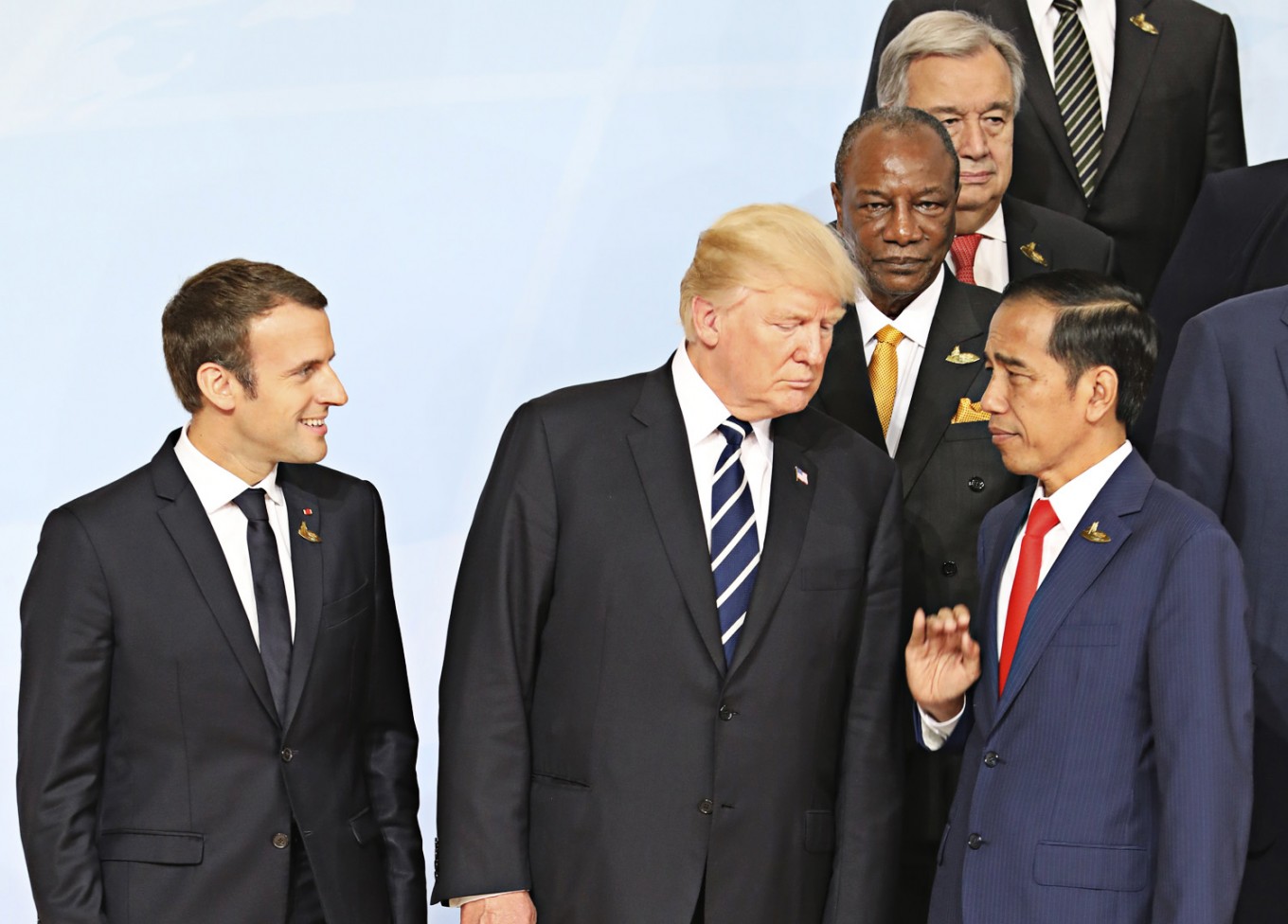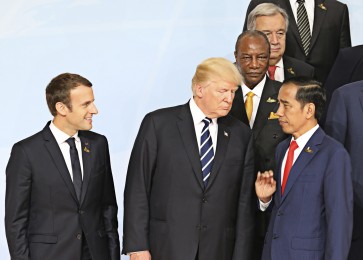Popular Reads
Top Results
Can't find what you're looking for?
View all search resultsPopular Reads
Top Results
Can't find what you're looking for?
View all search resultsINSIGHT: G20: From economic powerhouse to guardian of global welfare
Do the member states see their group as a constellation of great economic powers or are they ready to act as guardians of global welfare?
Change text size
Gift Premium Articles
to Anyone
 Powerful men: French President Emmanuel Macron (left) stands next to US President Donald Trump (center) and Indonesia’s President Joko “Jokowi” Widodo during the first day of the G20 meeting in Hamburg, northern Germany, on Friday. Leaders of the world’s top economies will gather from July 7 to 8 for what could be the stormiest G20 summit in years, with disagreements ranging from wars and climate change to global trade. (AFP/Ludovic Marin)
Powerful men: French President Emmanuel Macron (left) stands next to US President Donald Trump (center) and Indonesia’s President Joko “Jokowi” Widodo during the first day of the G20 meeting in Hamburg, northern Germany, on Friday. Leaders of the world’s top economies will gather from July 7 to 8 for what could be the stormiest G20 summit in years, with disagreements ranging from wars and climate change to global trade. (AFP/Ludovic Marin)

As the G20 leaders gathered in Hamburg, Germany, over the weekend, critics and supporters amplified their hopes in this economic powerhouse — a club of 19 countries plus the European Union. Nine years into its formation at the leaders’ level, G20 has consolidated its status as the power center of global economic governance.
The G20, which accounts for 85 percent of the world’s economy and 80 percent of global trade, successfully controlled the damage from the 2008 crisis by macro-level economic policy coordination. The coordinated actions by the G20 countries from 2009-2012 helped inject liquidity into markets, recapitalize international financial institutions, as well as provide a formula for global economic recovery and future crisis avoidance.
Its efforts during that period were also hailed as the exemplar of cooperation between developed and emerging economies of the world. G20 was also given credit for moderating trade conflicts and averting currency wars.
With five Asian countries as part of this group, namely China, India, Indonesia, Japan and South Korea, now G20 wants to steer the global economy toward strong, sustainable and balanced growth.
Critics have voiced their concern over the fundamental lack of legitimacy for the self-appointed group of global powers. They call into question the effectiveness of the G20 in balancing the national interests of countries that preside over the management of the world economy.
As a result of conflicting interests among members, particularly the United States, and other rising powers of Asia and Africa, the G20 has not shown much ambition to stop the erosion of the multilateral trade system through the emergence of mega regional trade agreements like the Transatlantic Trade and Investment Partnership (TTIP). Critics cite the lack of support from G20 on global public goods, such as the stability of the ecosystem that supports economic fundamentals.
Some also doubt the merits of G20, going much beyond its original mandate of fixing the global financial architecture to non-economic issues like climate change, healthcare, migration and terrorism — much like the United Nations. Issues on the finance track, typically led by finance ministries and central bank governors, were overtaken by the prioritization of issues on the “other track,” typically led by officials outside finance ministries.

















